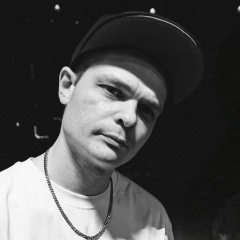"Если вы - мама, заботьтесь о свободном внутреннем пространстве, куда может прийти ребёнок и принести свои чувства. И вы их не испугаетесь, не обесцените в страхе ("стоит ли плакать из-за такой ерунды!"), не попытаетесь "выключить", не выдерживая его/ее боли ("чего сопли распустил/а! Большой/ая уже!"), не убежите, спрятавшись в занятость или болезнь ("маме плохо/мама занята, потом") и не нападете превентивно, вываливая на дитя свои собственные чувства.
Последнее особенно важно. Иногда мамы в намерении поддержать путают "давать" и "брать", а значит, путают роли. Так бывает, когда мама сама росла без эмоциональной родительской опоры. И теперь делится чувствами с ребёнком, "чтобы наши отношения были доверительными, а не как у меня с мамой". Некоторые мамы гордятся тем, что они с детьми "друзья" и все друг другу рассказывают. Я спрашиваю тогда, а кто же там у вас мама? Если ребёнок в курсе ваших эмоциональных и других проблем, есть у него ресурс вам помочь? А есть ли силы справиться с чувством беспомощности, которое он испытывает, видя ваши страдания и не умея их прекратить? И должен ли?"
Последнее особенно важно. Иногда мамы в намерении поддержать путают "давать" и "брать", а значит, путают роли. Так бывает, когда мама сама росла без эмоциональной родительской опоры. И теперь делится чувствами с ребёнком, "чтобы наши отношения были доверительными, а не как у меня с мамой". Некоторые мамы гордятся тем, что они с детьми "друзья" и все друг другу рассказывают. Я спрашиваю тогда, а кто же там у вас мама? Если ребёнок в курсе ваших эмоциональных и других проблем, есть у него ресурс вам помочь? А есть ли силы справиться с чувством беспомощности, которое он испытывает, видя ваши страдания и не умея их прекратить? И должен ли?"
“If you are a mother, take care of the free inner space where the child can come and bring your feelings. And you won’t be afraid, don’t discount them in fear (“ is it worth crying because of such nonsense! ”), You won’t try to“ turn it off ” , unable to withstand his / her pain ("why the snot dismissed! Big already!"), do not run away, hiding in employment or illness ("mother is bad / mother is busy, then") and do not attack proactively, dumping the child your own feelings.
The latter is especially important. Sometimes mothers confuse "give" and "take" in the intention to support, which means they confuse roles. This happens when a mother herself grew up without emotional parental support. And now she shares her feelings with the child, "so that our relationship is trusting, and not like my mother and I." Some mothers are proud that they are "friends" with children and tell each other everything. I ask then, and who is your mother there? If a child is aware of your emotional and other problems, does he have a resource to help you? But is there any power to cope with the feeling of helplessness that he experiences, seeing your suffering and not knowing how to end it? And should it? "
The latter is especially important. Sometimes mothers confuse "give" and "take" in the intention to support, which means they confuse roles. This happens when a mother herself grew up without emotional parental support. And now she shares her feelings with the child, "so that our relationship is trusting, and not like my mother and I." Some mothers are proud that they are "friends" with children and tell each other everything. I ask then, and who is your mother there? If a child is aware of your emotional and other problems, does he have a resource to help you? But is there any power to cope with the feeling of helplessness that he experiences, seeing your suffering and not knowing how to end it? And should it? "
У записи 4 лайков,
0 репостов,
77 просмотров.
0 репостов,
77 просмотров.
Эту запись оставил(а) на своей стене Ярослава Громова
























